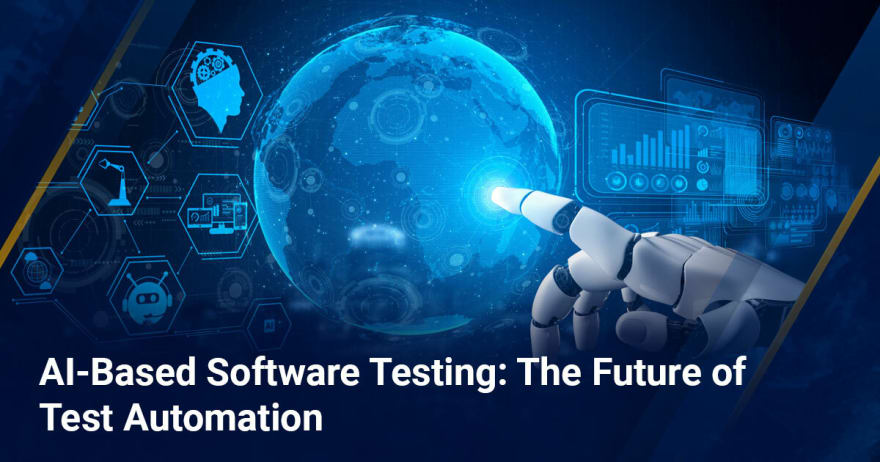An Interest In:
Web News this Week
- April 14, 2024
- April 13, 2024
- April 12, 2024
- April 11, 2024
- April 10, 2024
- April 9, 2024
- April 8, 2024
AI-Based Software Testing: The Future of Test Automation
The success of digital technologies, and by their extension, businesses, is underpinned by the optimal performance of the software systems that form the core of operations in these enterprises. Many times, such enterprises make a trade-off between delivering a superior user experience and a faster time to market. As a consequence, the quality of the software systems often suffers from inadequacies, and enterprises cannot make much of their early ingress into the market. This results in the loss of revenue and brand value for such enterprises. The alternative is to go for comprehensive and rigorous software testing to find and fix bugs before the actual deployment. In fact, methodologies such as Agile and DevOps have given enterprises the means to achieve both: a superior user experience and a faster time to market.
This is where AI-based automation comes into play and makes testing accurate, comprehensive, predictive, cost-effective, and quick. Artificial Intelligence, or AI, has become the buzzword for anything state-of-the-art or futuristic and is poised to make our lives more convenient. Consider smartphone, drone, and smart car technologies, among many others, for ushering in a digital revolution and transforming complex business operations. The use of AI covers a huge swath of sectors, ranging from customer service to manufacturing.
Moreover, AI-driven testing can vastly improve the testing process, maintain large IT systems, including distributed ones, and achieve a better quality of software. An AI testing framework in software engineering can predict the kinds of bugs or errors that specific coding processes can entail. With artificial intelligence software testing and deep learning algorithms, test teams can be relieved of the burden of conducting repeated testing. However, before we discuss how AI-based automation can transform the world of test automation, let us find out the anomalies in conventional test automation.
What are the shortcomings of conventional test automation?
Even after using open-source conventional test automation platforms such as Selenium, Appium, and others, test engineers and developers face a slew of challenges:
- Requirement of programming skills in JavaScript, Java, and other high-level programming languages.
- The modifications in test suites were often found to be unstable.
- Testers looked for frameworks or tools to integrate the test and development environments.
- Difficult to create test data and environments.
- Too many changes in requirements.
How AI test automation can be the future of software testing
The ways in which AI test automation can score over conventional test automation are:
Quicker and effortless testing: In conventional test automation, testers have to create test cases by coding in programming languages. This can be time-consuming and complex. However, with AI-based automation, test suites can be created by AI-based tools with minimal manual intervention. Moreover, the self-learning and self-generating nature of the testing process can incorporate new knowledge from existing processes to manage future challenges. AI can combine cognitive automation, machine learning, reasoning, analytics, and natural language processing. For instance, it can give a fillip to robotic process automation by leveraging technological approaches such as data mining, text analytics, machine learning, and others.
Visual validation: In cases of image-based testing, AI-ML-driven visual validation tools can detect UI anomalies that human eyes can miss. In such testing, issues such as the physical overlap of UI elements with other elements in terms of shape, position, color, and size are tested. Here, all visual bugs can be easily detected without the tester having to intervene.
Consistent and accurate testing: An AI testing framework is capable of detecting errors in dynamically changing software. Its ability to process massive amounts of data quickly and easily using artificial neural networks allows it to evaluate tests automatically. Besides, since the test suites are created, updated, and maintained automatically, the test results are fairly consistent, accurate, and comprehensive in their scope and impact. The AI-based test tools can check codes in real-time, thereby identifying errors and making corrections as the code or module moves through the value chain.
Updates of test tools and frameworks: The need to keep the test software suites updated with the latest trends is a challenge. Also, carrying out such modifications and repairs manually is not an easy thing to do, especially when the test teams are tasked with executing numerous tests. The answer lies in creating self-healing and self-testing systems that can run periodic scans, document results, offer solutions, and notify the developers of errors. With self-healing, the test systems can implement modifications or changes automatically.
Conclusion
AI ML testing is going to be the future given the benefits it provides in terms of convenience, savings in time and cost, and ease of maintenance. According to Statista, the growing footprint of the AI QA market is expected to touch $126 billion by 2025, thereby making it the future of software testing.
Original Link: https://dev.to/cigniti/ai-based-software-testing-the-future-of-test-automation-2a24
Dev To
 An online community for sharing and discovering great ideas, having debates, and making friends
An online community for sharing and discovering great ideas, having debates, and making friendsMore About this Source Visit Dev To


